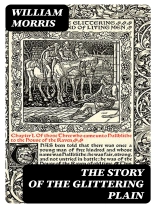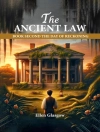In ‘The Story of the Glittering Plain, ‘ William Morris weaves a richly imaginative tapestry that transports readers to an idyllic mythical land. This prose lays the foundation for Morris’s distinctive literary style, characterized by lush descriptions and lyrical language that echo the romanticism of medieval literature. The narrative unfolds with the journey of a hero across an enchanting landscape, emblematic of Morris’s desire to revive the oral storytelling tradition, as well as his critique of industrial society’s disenchantment with nature. Set within the context of the broader Arts and Crafts movement, the tale not only entertains but also meditates on concepts of beauty and the moral responsibility of man to his surroundings. William Morris, an influential figure in the late 19th century, was an artist, designer, and socialist whose diverse experiences informed his writing. His deep appreciation for craftsmanship and the natural world, paired with a commitment to social reform, inspired him to create narratives that embody his ideals of harmony between art and life. This novel reflects Morris’s engagement with a Utopian vision, inviting readers to explore both personal transformation and communal unity. This enchanting tale serves as a profound invitation for readers seeking to escape into a world rich in beauty and adventure. ‘The Story of the Glittering Plain’ is not merely a fantasy; it is a reflection on the possibilities of life in harmony with nature and the power of storytelling as a vehicle for change. Morris’s work remains a cornerstone for those interested in literature that transcends reality and aspires to paint a more glorious world.
Sobre el autor
William Morris (1834-1896) was a multifaceted English artist, writer, and social activist. Pioneering the British Arts and Crafts Movement, Morris championed the value of craftsmanship which reflected also in his literary contributions. His influence extended beyond the visual arts to the literary world. As a novelist, he became a seminal figure in the development of modern fantasy literature. ‘The Story of the Glittering Plain’ is one of his well-known works, published in 1891. This enchanting prose romance exemplifies his talent for combining rich, imaginative storytelling with medievalism, a key characteristic of his literary style. Within this work, Morris weaves a tale of escapade and quest indicative of his fascination with Norse sagas and Arthurian legends. The narrative’s timeless appeal emanates from the utopian idealism etched in the prose, resonating with Morris’s socialist beliefs projected through mythical allegory. ‘The Story of the Glittering Plain’ is often credited for its influence on the high fantasy genre, anticipated by the likes of Tolkien and C.S. Lewis in later years. Morris’s approach to writing, characterized by an intertwining of poetic language with allusions stemming from ancient lore, not only provides aesthetic pleasure but also confronts readers with his visionary social and artistic ideals.












